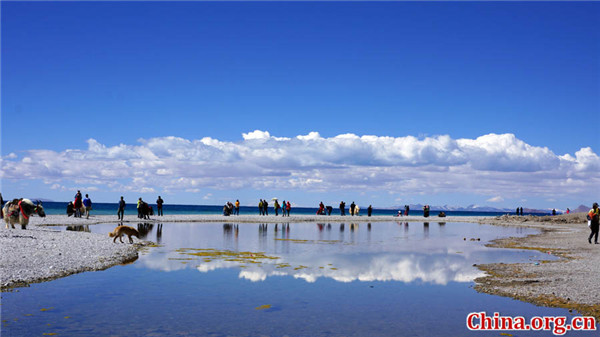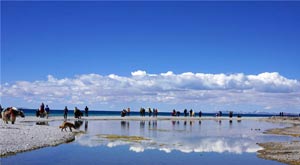Namtso no longer Tibet's largest lake: research
Xinhua, July 22, 2014 Adjust font size:
The Buddhist holy lake Namtso has lost its spot as Tibet's largest lake to Serling Tso, whose rapid expansion is fueled by melting glaciers and increased rain, according to new research.
|
Lake Namtso in southwest China's Tibet Autonomous Region, situated at more than 4,700 meters above sea level with a surface area of 1,920 square kilometers, is the salt-lake at the highest altitude in the world. [Photo/China.org.cn] |
The Serling Tso was measured at 2,391 square kilometers in June, 369 square km larger than the Namtso, which also makes it the second biggest salt lake in China, said Zhang Guoqing, assistant researcher with the Institute of Qinghai-Tibet Plateau Research with the Chinese Academy of Sciences.
Lake areas in the southwestern autonomous region have been growing in recent years, but the expansion of the Serling Tso has been remarkable, with its area growing by 535 square km, one-third of its original size, in the past decade, Zhang said.
The expansion is likely to continue, he added, though experts have not reached agreement on whether accelerated glacier thaw or increased precipitation is the major factor behind the expansion.
The lake's growth has inundated several pastures but has also improved the ecology in the area, officials in Xainza and Bangoin Counties in Nagqu Prefecture, where the lake is located, told Xinhua.
Due to global warming, glaciers in the region have shrunk by 15 percent in the past 30 years. Annual runoff from glaciers rose from 61.5 billion cubic meters to 79.5 billion cubic meters during the same period, which replenished the surface water, rivers and lakes, Zhang said.



